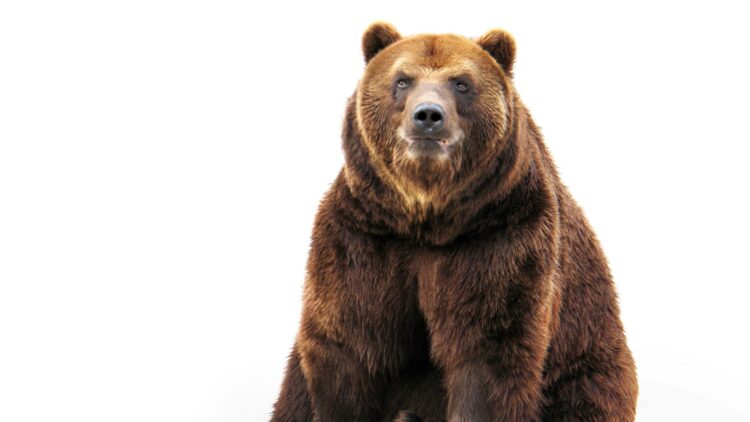Jambolina spent 12 long years behind strong iron bars in confinement, loneliness, and captivity. She regained freedom in the wake of Covid-19 and brought a sweet smile of victory to the faces of animal rescuers who fought tooth and nail to see that she came out a free bear.
This excitement was soon cut short as she died a few months later, and now a series of opinions are pouring in about her condition when she was alive.
Keep reading for the details.
Jambolina’s Journey
The poor bear’s journey in captivity began when she was just a few weeks old and was put on display at a Crimean zoo, where she was soon whisked away to a circus for amusement.
Kept In A Cage

The baby bear at that time was kept in a small cage and trained to perform party tricks using tactics animal campaigners have now described as “torture.”
Isolated From The World
In her tiny cage, Jambolina learned the ropes to survive without seeing another bear or even being allowed to exist naturally and exhibit any natural traits. She, however, entertained crowds everywhere she went, but animal lovers were deeply concerned for her well-being.
COVID-19
The outbreak of the deadly virus, which saw the world go on an impromptu lockdown in 2020, affected the availability of performances forcing Jambolina’s owner at that time to get rid of him.
Four Paws To The Rescue

An animal-loving agency, Four Paws animal charity, offered to rescue the bear and moved her to Switzerland for better care on December 8, 2020.
Jambolina Couldn’t Move
According to the owner, Jambolina couldn’t move at all and suffered from boredom. He charged the charity to give her a better life.
Four Days To Move Jambolina
According to Four Paws International, it took the team four days to move Jambolina over 1,500 miles to the Swiss Alps, where she found her new home at the Arosa Bear Land sanctuary.
Katharina Braun On The Situation

An expert at Four Paws International, Katharina Braun confirmed that the animal was kept in a tiny cage and left alone as a cub, completely isolated from other bears.
Transporting Jambolina During Covid
Taras Boiko, director of Four Paws in Ukraine, described the rescue as a complex journey, especially when crossing through Poland, Germany, and Austria following heavy Covid travel restrictions.
According to Barbara Van Genne,
Jambolina Quickly Adapted
The smart bear surprised its rescue team by settling down quickly in its new environment, first for her first-ever winter nap in December 2020, taking her first nervous steps, and playing with Meimo – a bear who had also lived in the reserve since he was rescued from Shkodra in February 2019.
Dr. Hans Schmid

The Scientific Director of the Arosa Bear Land totally expected Jambolina’s behavior, revealing it was a survival strategy common with humans and animals.
Her First Bath
The giant bear soon approached a pond in its new outdoor environment and dashed in for a long bath alongside Meimo, after which they both laid on their backs.
Jambolina The Brave Girl
Experts on the resort described the bear as “brave and clever,” stating that they’re very pleased she could find her way around the outdoor area quickly.
“Moments like this give me goosebumps and it’s just incredibly beautiful to see how we can give the bears a new life,” expressed Four Paws Country Manager in Switzerland, Alexandra Mandoki.
An Important Surgery
To prevent breeding between the bears, Jambolina needed to be sterilized and undergo dental reconstruction surgery due to years of damage caused in captivity to allow her to live a long life.
Jambolina Couldn’t Make It

Top veterinary doctors gathered for the task and sedated Jambolina on August 5, 2021. unfortunately, the bear passed away shortly after being given an anesthetic.
“It is with heavy hearts and deepest sadness that we have to inform you that Jambolina suddenly and unexpectedly passed away,” a spokesman for animal charity Four Paws wrote in a statement released on social media.
All efforts to resuscitate her proved abortive, and now Jambolina will only exist in our memories forever.
















































